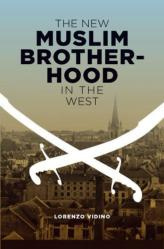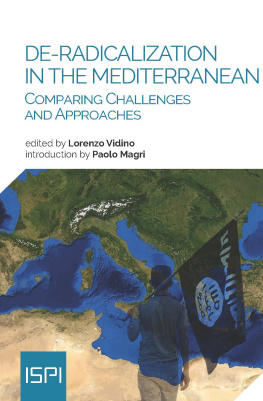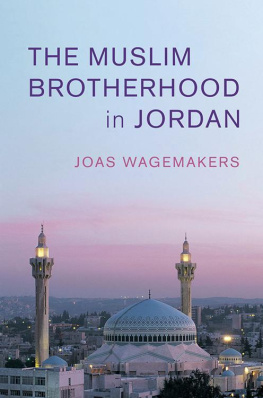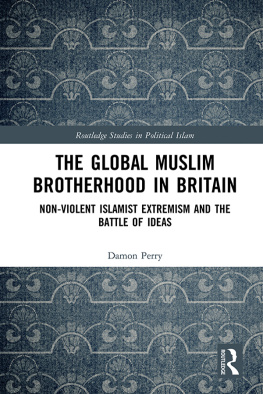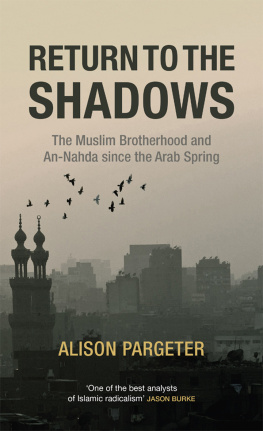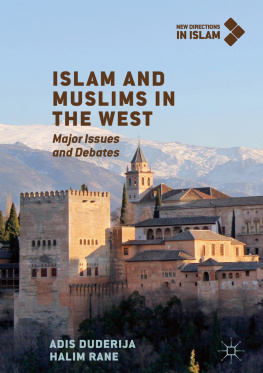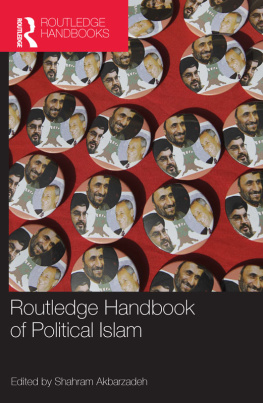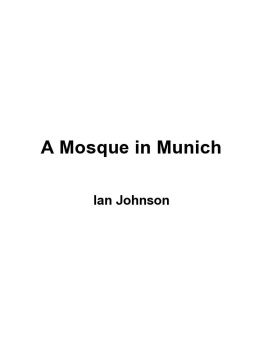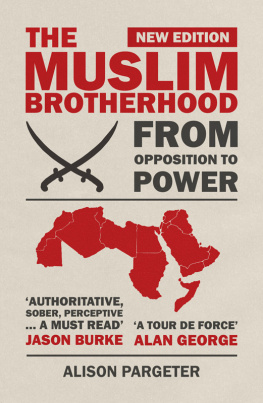This series seeks to fill a conspicuous gap in the burgeoning literature on terrorism, guerrilla warfare, and insurgency. The series adheres to the highest standards of scholarship and discourse and publishes books that elucidate the strategy, operations, means, motivations, and effects posed by terrorist, guerrilla, and insurgent organizations and movements. It thereby provides a solid and increasingly expanding foundation of knowledge on these subjects for students, established scholars, and informed reading audiences alike.





vii
1 1

This book is the fruit of nine years of research, dozens of trips that have led me to sixteen countries in four continents, and more than two hundred interviews with government officials, scholars, journalists, and activists who were kind enough to sacrifice some of their time and share their thoughts with me. Aside from the many people who helped me that I cannot publicly acknowledge, I would like to mention, in strictly alphabetical order: Pernille Ammitzboll, Jeffrey Bale, Ibrahim Barzawi, Daniel and David Beran, David Draper, Ryan Evans, Alice Falk, Doug Farah, Dean Godson, Husain Haqqani, Evan Kohlmann, Josh Lefkowitz, Robert Leiken, Stefan Meining, Steven Merley, Herbert Muller, Raffaello Pantucci, Jonathan Paris, Angel Rabasa, Ibrahim Ramadan, Dave Rich, Udi Rosen, Ronald Sandee, Cynthia Sanders, Morten Skjoldager, Tamar Tesler, Edward Valla, Nasser Wed- dady, Michael Wildes, and Barbara Zollner. I am also very grateful to the many leaders of the Muslim Brotherhood and legacy groups in the West who agreed to talk to me. Among them I would like to thank in particular Kamal Helbawy and Yussuf Nada, whose insights were priceless.
Many individuals and institutions have supported my research in various ways. Among them, I cannot thank enough some of the faculty and personnel at the Fletcher School of Law and Diplomacy: Andrew Hess, William Martel, Anna Seleny, Vali Nasr, Linda Batista, Bernie Kelley-Leccese, and Jenifer Burckett-Picker. Robert Pfaltzgraff and the people at IFPA have been equally exceptional. I am very grateful also to Nadia Schadlow and Marin Strmecki at the Smith Richardson Foundation for believing in this project. The support received from Harvard University's Belfer Center (in particular from Monica Duffy Toft, Steven Miller, and Susan Lynch) and the U.S. Institute of Peace (thanks to Chantal De Jonge Oudraat, Lili Cole, and Shira Lowinger) has been crucial in the latest stages of my work. I would also like to acknowledge Anne Routon and Leslie Kriesel at Columbia University Press for their support and patience. Finally, my most heartfelt thanks go to the two people without whom this book would have not been possible, two extraordinary mentors whose friendship I deeply cherish: Bruce Hoffman and Richard Shultz.
This book is dedicated to my family. To Ellie, Marco, Jonathan, Ruth, Jack, Orna, and Nike, for their patience and encouragement. To my parents, for their infinite love and support. And to Jessica, love of my life, for being who she is.


No American Muslim leader ever had better access to the U.S. political establishment than Abdurahman Alamoudi. After his arrival in the United States as a student in i98o, the Eritrean-born biochemist involved himself in various American Muslim organizations, assuming leadership positions in several of them.' By the end of the decade he had settled in Washington, where he began to develop an impressive network of contacts within the upper echelons of the American political establishment. In 199o, Alamoudi cofounded the American Muslim Council (AMC) and soon became a regular visitor to the White House, establishing cordial relationships with both Republican and Democratic administrations. He held frequent meetings with members of Congress and even managed to successfully lobby Congress to host, for the first time in history, the opening invocation from an Islamic leader.'
By the mid-199os Alamoudi had become a staple of Washington's political life.' His organization planned events with interfaith groups, dealing with the country's Protestant, Catholic, and Jewish leaders at the highest levels. Representatives and senators, bishops, and media personalities, eager to establish relations with American Muslims, enthusiastically attended AMC's events, which often were held in Washington's most prestigious hotels.' After extensive meetings the Department of Defense put Alamoudi in the powerful position of training and vetting the imams who attend to the religious needs of American Muslims serving in the military.' His organization was praised by the FBI as "the most mainstream Muslim group in the United States," and the State Department even appointed him as a goodwill ambassador, routinely asking him to travel throughout the world representing American Muslims.' Washington's establishment considered Alamoudi a successful, representative, and moderate Muslim leader who could be a spokesman and model for the American Muslim community.
In 2003, however, an unexpected discovery during a routine customs screening at London's Heathrow Airport undid Alamoudi's accomplishments. He was found to have concealed $340,000 in his suitcase. An investigation revealed that Alamoudi had been illegally importing funds from Libya since 1995 and that part of the money was intended to support a murky plot-conceived by the Libyan government and two Londonbased Saudi dissidents linked to al Qaeda-to assassinate Saudi Crown Prince Abdallah. A year later Alamoudi pled guilty to all charges and was sentenced to twenty-three years in jail.' The investigation also revealed Alamoudi's financial dealings with U.S.-designated terrorist organizations such as Hamas and al Qaeda, for which the Treasury Department accused him of fund-raising in the United States.'
To many in Washington, Alamoudi's ties did not come as a complete shock. Since the 199os, in fact, law enforcement agencies had been quietly monitoring his links to elements suspected of terrorist ties.' In addition, over the years, Alamoudi had repeatedly made comments that clearly displayed his sympathies for Islamist outfits banned in the United States. Once, authorities intercepted a phone conversation in which Alamoudi told his interlocutor that the 1998 attacks perpetrated by al Qaeda against American embassies in East Africa had been "wrong," but only because "many African Muslims have died and not a single American died."10 Alamoudi had also expressed his political views in public venues. In October 2000, speaking at a rally in Washington's Lafayette Park, just a block away from the White House, he proudly proclaimed: "Hear that, Bill Clinton, we are all supporters of Hamas! I wish they added that I am also a supporter of Hezbollah!"11

